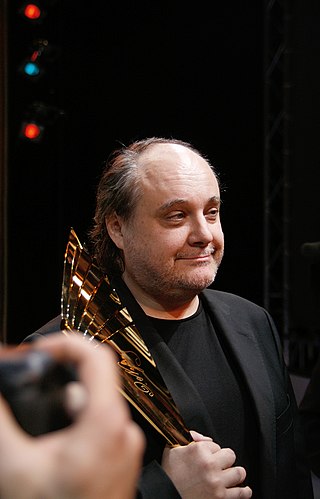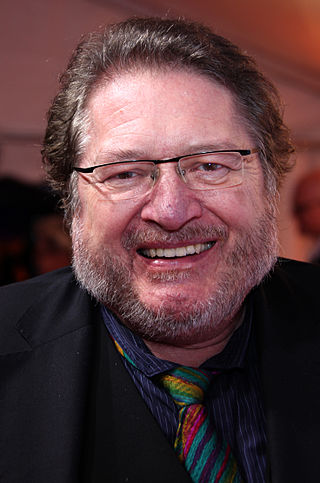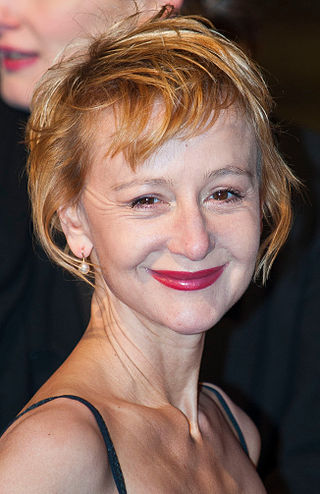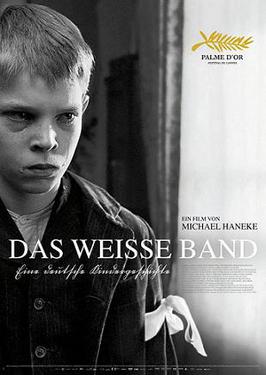Christoph Bantzer (born 4 January 1936 in Marburg) is a German television actor.
Christoph Bantzer (born 4 January 1936 in Marburg) is a German television actor.
Christoph Bantzer born on 4 January 1936 in Marburg in a family of artists (both father and grandfather were painters). His younger brother Claus Bantzer is a musician and composer.[ citation needed ]
Bantzer studied acting at the Berlin University of the Arts.[ citation needed ]
His focus is the theater spectacle; he played in many important German-language theaters, such as Schiller Theater, Zürich playhouse or the Burgtheater. From 1972 to 1977 he was a member of Christoph Bantzer Deutsches Schauspielhaus in Hamburg. Since 1985 - the beginning of Jürgen Flimm's directorship - Bantzer belongs to the Thalia Theater in Hamburg.[ citation needed ]
In addition to his theater engagements, Bantzer works with many films, mainly these are television productions. As speaker, he can be heard on an audio book series and also in dubbed films.[ citation needed ]

Wolfgang Staudte, born Georg Friedrich Staudte, was a German film director, script writer and actor. He was born in Saarbrücken.

Michael Haneke is an Austrian film director and screenwriter. His work often examines social issues and depicts the feelings of estrangement experienced by individuals in modern society. Haneke has made films in French, German, and English and has worked in television and theatre, as well as cinema. He also teaches film direction at the Film Academy Vienna.

Funny Games is a 1997 Austrian psychological horror-thriller film written and directed by Michael Haneke, and starring Susanne Lothar, Ulrich Mühe, and Arno Frisch. The plot involves two young men who hold a family hostage in their vacation home and torture them with sadistic games. The film was entered into the 1997 Cannes Film Festival. A shot-for-shot remake, filmed and set in the United States, was released in 2007, also directed by Haneke, this time with an English-speaking cast and a mostly American crew.
Wolfgang Georg Louis Liebeneiner was a German actor, film director and theatre director.

Ulrich Tukur is a German actor and musician. He is known for his roles in Michael Haneke's The White Ribbon, Steven Soderbergh's Solaris, the docudrama North Face based on the 1936 Eiger climbing disaster in Switzerland, and as Wilhelm Uhde in Martin Provost's biopic Séraphine.

Paulus Manker is an Austrian film director and actor, as well as an author and screenplay writer.

Christian Urs Quadflieg was a German actor and television director. After working at various theatres, he became a freelance actor from 1974 onwards. He had his breakthrough on television in 1977 in the episode Reifezeugnis from the Tatort series. He had roles in many popular television series, namely the title role in Der Landarzt, which he played for 42 episodes from 1987 to 1992.

Ernst Gerhard Ludwig Jacobi-Scherbening, professionally called Ernst Jacobi, was a German actor. He was known for serious character roles, especially in the 1979 film The Tin Drum, as Hans in Germany, Pale Mother (1980), as Adolf Hitler in Hamsun (1996), and as the narrator in The White Ribbon (2009). He appeared in over 200 television productions and worked at the Burgtheater in Vienna from 1977 to 1987, and at the Schauspielhaus Zürich from 1987 to 1992. In 1975 he won the Berliner Kunstpreis for his portrayal of Alexander März in the television film Das Leben des schizophrenen Dichters Alexander März.

Claus Bantzer is a German church musician, composer and director.
Volker Spengler was a German stage and film actor. Spengler was best known to international audiences as a member of director Rainer Werner Fassbinder's acting ensemble, including his role as the transsexual Erwin/Elvira of Fassbinder's In a Year of 13 Moons (1978). Spengler appeared in about 40 film and television productions between 1966 and 2004, also working with other directors such as Christoph Schlingensief and Volker Schlöndorff. On stage, he performed at Berlin's Volksbühne and with the Berliner Ensemble.

Susanne Lothar was a German film, television and stage actress.

The White Ribbon is a 2009 German-language mystery drama film, written and directed by Michael Haneke. Released in black-and-white, the film offers a dark depiction of society and family in a northern German village just before World War I. According to Haneke, The White Ribbon "is about the roots of evil. Whether it's religious or political terrorism, it's the same thing."
Rosalie Helga Lina Zech, known as Rosel Zech, was a German theater and film actress, she is most well known for her works associated with the "Autorenkino" movement, which began in the 1970s.
Klaus Emmerich is a German film director and screenwriter. His 1979 film The First Polka was entered into the 29th Berlin International Film Festival. His 1981 film Trokadero was entered into the 12th Moscow International Film Festival.
Heinz Lieven was a German actor.

Falk Harnack was a German director and screenwriter. During Germany's Nazi era, he was also active with the German Resistance and toward the end of World War II, the partisans in Greece. Harnack was from a family of scholars, artists and scientists, several of whom were active in the anti-Nazi Resistance and paid with their lives.

Samuel Finzi is a Bulgarian-German actor. Since his start in the late 1980s, he has hundreds of film, television, and theatrical credits. Between 1993 and 2011, he received ten acting awards.
Christoph Marthaler is a Swiss director and musician.
Iris Vermillion is a German operatic mezzo-soprano. A member of the Deutsche Oper Berlin from 1988, she has enjoyed an international career, appearing in Amsterdam with Nikolaus Harnoncourt and at the Salzburg Festival, among others.

Carl Ludwig Noah Bantzer was a painter, professor and art critic; associated with the Willingshausen Artists' Colony.